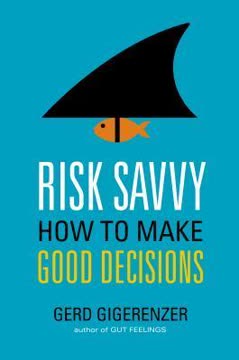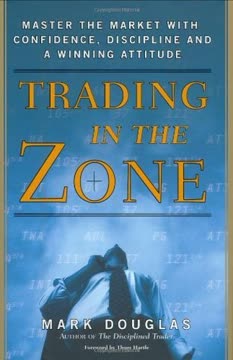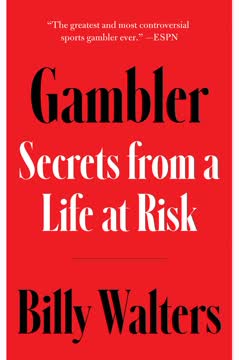Key Takeaways
1. Sports Betting Is a Multiplayer Game, Not Solitaire
"If you can't spot the sucker in your first half hour at the table, then you are the sucker."
Competitive landscape: Sports betting is a multiplayer game where you compete against the sportsbook and other bettors. Unlike casino games where you play against fixed rules, in sports betting, you're up against human decision-makers who actively try to beat you.
Information asymmetry: Sportsbooks have significant advantages, including access to betting histories and the ability to move lines. However, bettors can gain an edge through specialization and superior analysis of specific markets or sports.
Zero-sum game: Remember that for you to win, someone else must lose. This dynamic creates a highly competitive environment where only the most skilled and disciplined bettors can consistently profit.
2. Understanding Break-Even Percentages Is Crucial
"Convert everything to break-even percentages."
Key concept: Break-even percentage is the percentage of time a bet must win for you to neither win nor lose money over time. It's based on the payout odds, not the true probability of winning.
Calculation methods:
- For positive American odds: 100 / (100 + odds)
- For negative American odds: |odds| / (100 + |odds|)
- For decimal odds: 1 / decimal odds
Application: By converting all odds to break-even percentages, you can more easily compare different bets and identify value. This skill is fundamental to long-term success in sports betting.
3. Market Making Drives Line Movement
"Sportsbooks copy their lines from other sportsbooks."
Line origination: Most sportsbooks don't create their own lines. Instead, they copy from a small number of market-making books that use price discovery to set initial lines.
Price discovery process:
- Market maker posts initial lines with low limits
- Sharp bettors place early bets
- Lines move based on betting action
- Process repeats until lines stabilize
Implications: Understanding this process helps bettors identify weak lines and potential opportunities, especially in less popular or newly opened markets.
4. Sportsbooks Have Different Business Models
"Market making has a few benefits. First, you don't have to pay a vendor for your lines—you make them yourself."
Market makers:
- Create their own lines through price discovery
- Accept bets from all customers, including sharp bettors
- Operate on thin margins with high volume
- Face significant risks but have more control over their odds
Retail books:
- Copy lines from market makers
- Often limit or ban winning bettors
- Focus on recreational customers
- Use higher holds and marketing to drive profits
Implications: Understanding a sportsbook's business model helps bettors identify potential weaknesses and opportunities in their offerings.
5. Attack Weakness, Avoid Strength in Betting Markets
"You want the ass bets."
Market strength factors:
- Multiple market-making books
- Large betting limits
- Widely available information
- Lower hold percentages
Market weakness factors:
- Few or no market-making books
- Small betting limits
- Limited available data
- Very large public interest
Strategy: Focus on weaker markets where sportsbooks are more likely to make mistakes or have less accurate lines. Avoid heavily bet, efficient markets unless you have a significant edge.
6. Exploit Correlated Parlays and Derivative Markets
"Sportsbooks are often very restrictive about allowing you to parlay derivatives and props—and for good reason."
Correlated parlays: Bets where winning one leg increases the likelihood of winning another. These can offer significant value if allowed by the sportsbook.
Derivative markets: Secondary bets related to main markets (e.g., first half, player props). Often less efficient and more prone to mistakes.
Opportunities:
- Look for sportsbooks with loose parlay rules
- Identify mispriced derivatives, especially those not tied to liquid markets
- Exploit gaps in sportsbook knowledge or modeling of specific situations
7. In-Play Betting Offers Unique Opportunities and Risks
"The way to win at in-game betting is to spot the situations where the line feed has made an error making the line and bet those."
Key considerations:
- Bet only during timeouts to avoid delays and information asymmetry
- Look for mistakes in game state, important factors, or fundamental modeling
- Compare different sportsbooks' in-play lines to identify discrepancies
Common errors:
- Incorrect scoring or game situation
- Failure to account for injuries or strategic changes
- Modeling errors in specific situations (e.g., end-of-game scenarios)
8. Leverage Sportsbook Marketing to Your Advantage
"A dirty secret of professional gambling is that a very substantial proportion of the win comes directly and indirectly from the casino or betting operator's marketing budget."
Promotional opportunities:
- Deposit bonuses
- Risk-free bets
- Odds boosts
- Referral programs
Strategy:
- Open accounts at multiple sportsbooks to access more promotions
- Carefully read terms and conditions to maximize value
- Use arbitrage or low-risk betting strategies to clear bonus requirements
Long-term perspective: While promotions can provide short-term profits, developing sustainable betting skills is crucial for long-term success.
Last updated:
FAQ
What's "The Logic Of Sports Betting" about?
- Overview: "The Logic Of Sports Betting" by Ed Miller and Matthew Davidow is a comprehensive guide to understanding the intricacies of sports betting. It delves into the mechanics of how bets are made, how sportsbooks operate, and how bettors can find an edge.
- Focus on Strategy: The book emphasizes the importance of understanding market dynamics and using logical strategies to identify profitable betting opportunities.
- Educational Approach: It aims to educate both novice and experienced bettors on the principles of betting, including odds, market making, and the role of sportsbooks.
Why should I read "The Logic Of Sports Betting"?
- Gain Insight: The book provides deep insights into the sports betting industry, helping readers understand how lines are set and how to identify value bets.
- Improve Betting Skills: It offers practical advice and strategies to improve betting skills, making it a valuable resource for anyone looking to bet more effectively.
- Avoid Common Pitfalls: By understanding the logic behind sports betting, readers can avoid common mistakes and misconceptions that lead to losses.
What are the key takeaways of "The Logic Of Sports Betting"?
- Market Dynamics: Understanding that sports betting is a multiplayer game where bettors compete against both the house and other bettors.
- Importance of Odds: Learning to convert odds into break-even percentages to assess the value of a bet.
- Identifying Weak Markets: Focusing on finding and exploiting weak markets where sportsbooks may not have set accurate lines.
How do Ed Miller and Matthew Davidow suggest finding value in sports betting?
- Line Shopping: Always look for the best price across different sportsbooks to minimize the hold and maximize potential profits.
- Related Markets: Use related markets to create synthetic zero-hold markets, allowing for more profitable betting opportunities.
- Market Agreement: Pay attention to market agreement and resistance to gauge whether a bet is likely to be profitable.
What are the best quotes from "The Logic Of Sports Betting" and what do they mean?
- "If you can’t spot the sucker...": This quote emphasizes the importance of understanding the dynamics of the betting market and recognizing when you have an edge.
- "Sports betting is a multiplayer game...": Highlights the competitive nature of sports betting, where bettors are not just against the house but also against each other.
- "Avoid strength. Attack weakness.": A strategic approach to focus on markets where sportsbooks are vulnerable and avoid those where they are strong.
How do sportsbooks set their lines according to "The Logic Of Sports Betting"?
- Market Making: Some sportsbooks act as market makers, setting initial lines and adjusting them based on betting action.
- Copying Lines: Many sportsbooks copy lines from market makers, especially for major markets, to ensure they are competitive.
- Price Discovery: Lines are often adjusted through a process of price discovery, where sportsbooks take bets and move lines to balance action.
What is the role of the hold in sports betting as explained in "The Logic Of Sports Betting"?
- Definition of Hold: The hold is the percentage of all bets a sportsbook expects to win, acting as their profit margin.
- Impact on Bettors: A higher hold means bettors need to win more often to be profitable, making it crucial to find low-hold markets.
- Chopping the Hold: Bettors can reduce the hold by line shopping and finding synthetic markets with lower or zero hold.
How do Ed Miller and Matthew Davidow define and use "market agreement and resistance"?
- Market Agreement: When the market moves in favor of a bet after it's placed, indicating that other bettors agree with the bet's value.
- Market Resistance: When the market moves against a bet, suggesting that the bet may not be as valuable as initially thought.
- Importance: Understanding these concepts helps bettors assess the quality of their bets and adjust their strategies accordingly.
What strategies do Ed Miller and Matthew Davidow recommend for betting derivatives?
- Understanding Derivatives: Derivatives are bets related to the main markets, such as first half or quarter lines, and can offer value if priced incorrectly.
- Modeling and Analysis: Use data and models to understand the relationship between derivatives and main markets to find mispriced bets.
- Exploiting Weaknesses: Focus on derivatives that are less frequently bet and therefore more likely to be mispriced by sportsbooks.
How can bettors take advantage of parlays according to "The Logic Of Sports Betting"?
- Volume Increase: Parlays increase betting volume, which can be advantageous if the bettor has an edge on the individual bets.
- Correlated Parlays: Look for opportunities where the outcomes of parlayed bets are correlated, increasing the likelihood of winning.
- Circumventing Limits: Use parlays to circumvent betting limits on individual games, allowing for larger overall bets.
What are multiway markets and how can they be profitable as per "The Logic Of Sports Betting"?
- Definition: Multiway markets offer more than two betting options, such as futures or props, and often have higher holds.
- Finding Value: Despite the high hold, these markets can be profitable if bettors can identify mispriced options among the many choices.
- Complexity in Pricing: The difficulty sportsbooks face in accurately pricing all options in a multiway market creates opportunities for savvy bettors.
How do Ed Miller and Matthew Davidow suggest using in-play betting to find profitable opportunities?
- Identifying Mistakes: Look for mistakes in the in-play lines, such as incorrect game state information or failure to account for game-specific factors.
- Betting During Timeouts: Focus on betting during timeouts when both the bettor and sportsbook have the same information about the game.
- Avoiding Delays: Be cautious of sportsbooks that impose delays on in-play bets, as this can disadvantage the bettor.
Review Summary
The Logic Of Sports Betting receives generally positive reviews, with readers praising its insightful analysis of sports betting mechanics and strategies. Many found it educational, particularly for novice bettors, though some noted its complexity. The book is commended for its detailed explanations of sportsbook operations, betting logic, and market inefficiencies. While some readers found it sobering about the difficulties of profitable betting, others appreciated its practical advice. A few reviewers mentioned the book's American-centric focus and lack of coverage on bankroll management.
Similar Books









Download PDF
Download EPUB
.epub digital book format is ideal for reading ebooks on phones, tablets, and e-readers.




